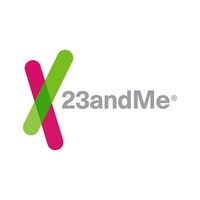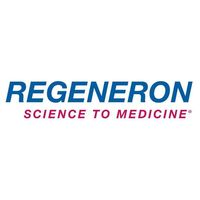Regeneron’s Bold Move: Acquiring 23andMe Amidst Bankruptcy
May 20, 2025, 4:31 am

Location: United States, California, San Francisco
Employees: 201-500
Founded date: 2013
Total raised: $88M

Location: United States, California, Sunnyvale
Employees: 501-1000
Founded date: 2006
Total raised: $2.75B
In a dramatic twist of fate, Regeneron Pharmaceuticals is set to acquire 23andMe for $256 million. This deal comes on the heels of 23andMe’s bankruptcy, a stark contrast to its once-thriving status as a pioneer in genetic testing. The acquisition is a lifeline for 23andMe, which has struggled to maintain its footing in a rapidly evolving market.
23andMe, known for its at-home DNA testing kits, soared to fame by offering customers insights into their ancestry and genetic health. At its peak, the company was valued at around $6 billion. However, the allure faded. The company faced challenges in generating consistent revenue and building a sustainable research and therapeutics business. A significant data breach in 2023, which compromised the information of nearly 7 million customers, further tarnished its reputation.
The bankruptcy filing in March 2025 marked a turning point. It was a cry for help from a company that had once captured the public's imagination. Regeneron, a well-established player in the pharmaceutical industry, stepped in during the bankruptcy auction. The deal includes 23andMe’s Personal Genome Service and Total Health and Research Services, but notably excludes its telehealth subsidiary, Lemonaid Health, which will be shut down.
This acquisition is not just a financial transaction; it’s a strategic move. Regeneron aims to leverage 23andMe’s genetic data to enhance its own research capabilities. The company believes it can help 23andMe fulfill its mission of empowering individuals to understand their DNA and improve their health. This partnership could potentially unlock new avenues in personalized medicine.
However, the acquisition is not without its complications. Privacy concerns loom large. Lawmakers and consumer advocates have raised alarms about the safety of genetic data. The Federal Trade Commission has scrutinized the sale process, fearing that sensitive information could fall into the wrong hands. To address these concerns, 23andMe has appointed a Consumer Privacy Ombudsman. This independent overseer will evaluate the deal and ensure compliance with privacy policies.
Regeneron has committed to adhering to these privacy standards. The company has assured stakeholders that it will respect customer data and follow applicable laws. This is crucial. Trust is the currency of the digital age, especially when it comes to personal health information. The court will review the privacy ombudsman’s report before finalizing the deal, expected to close in the third quarter of 2025.
The narrative of 23andMe is a cautionary tale. Once a darling of the tech world, it now serves as a reminder of the volatility in the biotech sector. The company’s initial success was built on a wave of consumer interest in genetic testing. However, as competition intensified and privacy issues surfaced, the company struggled to maintain its momentum. The allure of ancestry and health insights was not enough to sustain a viable business model.
Regeneron’s acquisition could breathe new life into 23andMe. The pharmaceutical giant has a robust pipeline of drugs and a strong commitment to research. By integrating 23andMe’s genetic data, Regeneron could enhance its drug development processes. This synergy could lead to breakthroughs in personalized medicine, where treatments are tailored to individual genetic profiles.
Yet, the road ahead is fraught with challenges. Regeneron must navigate the complexities of integrating 23andMe’s operations while addressing privacy concerns. The company will need to rebuild trust with consumers who may be wary of how their genetic data is used. Transparency will be key. Regeneron must communicate clearly about its intentions and how it plans to protect customer information.
The acquisition also raises questions about the future of genetic testing. As more companies enter the market, the landscape is becoming increasingly competitive. Regeneron’s entry into this space could signal a shift towards more pharmaceutical involvement in genetic testing. This could lead to innovations but also raises ethical considerations about data ownership and consent.
In conclusion, Regeneron’s acquisition of 23andMe is a significant development in the biotech landscape. It represents both an opportunity and a challenge. The potential for enhanced research and personalized medicine is immense. However, the specter of privacy concerns looms large. As the deal moves forward, all eyes will be on how Regeneron navigates these waters. The future of 23andMe hangs in the balance, and with it, the promise of personalized health insights for millions. The journey from bankruptcy to rebirth is fraught with uncertainty, but it also holds the potential for groundbreaking advancements in healthcare.
23andMe, known for its at-home DNA testing kits, soared to fame by offering customers insights into their ancestry and genetic health. At its peak, the company was valued at around $6 billion. However, the allure faded. The company faced challenges in generating consistent revenue and building a sustainable research and therapeutics business. A significant data breach in 2023, which compromised the information of nearly 7 million customers, further tarnished its reputation.
The bankruptcy filing in March 2025 marked a turning point. It was a cry for help from a company that had once captured the public's imagination. Regeneron, a well-established player in the pharmaceutical industry, stepped in during the bankruptcy auction. The deal includes 23andMe’s Personal Genome Service and Total Health and Research Services, but notably excludes its telehealth subsidiary, Lemonaid Health, which will be shut down.
This acquisition is not just a financial transaction; it’s a strategic move. Regeneron aims to leverage 23andMe’s genetic data to enhance its own research capabilities. The company believes it can help 23andMe fulfill its mission of empowering individuals to understand their DNA and improve their health. This partnership could potentially unlock new avenues in personalized medicine.
However, the acquisition is not without its complications. Privacy concerns loom large. Lawmakers and consumer advocates have raised alarms about the safety of genetic data. The Federal Trade Commission has scrutinized the sale process, fearing that sensitive information could fall into the wrong hands. To address these concerns, 23andMe has appointed a Consumer Privacy Ombudsman. This independent overseer will evaluate the deal and ensure compliance with privacy policies.
Regeneron has committed to adhering to these privacy standards. The company has assured stakeholders that it will respect customer data and follow applicable laws. This is crucial. Trust is the currency of the digital age, especially when it comes to personal health information. The court will review the privacy ombudsman’s report before finalizing the deal, expected to close in the third quarter of 2025.
The narrative of 23andMe is a cautionary tale. Once a darling of the tech world, it now serves as a reminder of the volatility in the biotech sector. The company’s initial success was built on a wave of consumer interest in genetic testing. However, as competition intensified and privacy issues surfaced, the company struggled to maintain its momentum. The allure of ancestry and health insights was not enough to sustain a viable business model.
Regeneron’s acquisition could breathe new life into 23andMe. The pharmaceutical giant has a robust pipeline of drugs and a strong commitment to research. By integrating 23andMe’s genetic data, Regeneron could enhance its drug development processes. This synergy could lead to breakthroughs in personalized medicine, where treatments are tailored to individual genetic profiles.
Yet, the road ahead is fraught with challenges. Regeneron must navigate the complexities of integrating 23andMe’s operations while addressing privacy concerns. The company will need to rebuild trust with consumers who may be wary of how their genetic data is used. Transparency will be key. Regeneron must communicate clearly about its intentions and how it plans to protect customer information.
The acquisition also raises questions about the future of genetic testing. As more companies enter the market, the landscape is becoming increasingly competitive. Regeneron’s entry into this space could signal a shift towards more pharmaceutical involvement in genetic testing. This could lead to innovations but also raises ethical considerations about data ownership and consent.
In conclusion, Regeneron’s acquisition of 23andMe is a significant development in the biotech landscape. It represents both an opportunity and a challenge. The potential for enhanced research and personalized medicine is immense. However, the specter of privacy concerns looms large. As the deal moves forward, all eyes will be on how Regeneron navigates these waters. The future of 23andMe hangs in the balance, and with it, the promise of personalized health insights for millions. The journey from bankruptcy to rebirth is fraught with uncertainty, but it also holds the potential for groundbreaking advancements in healthcare.
